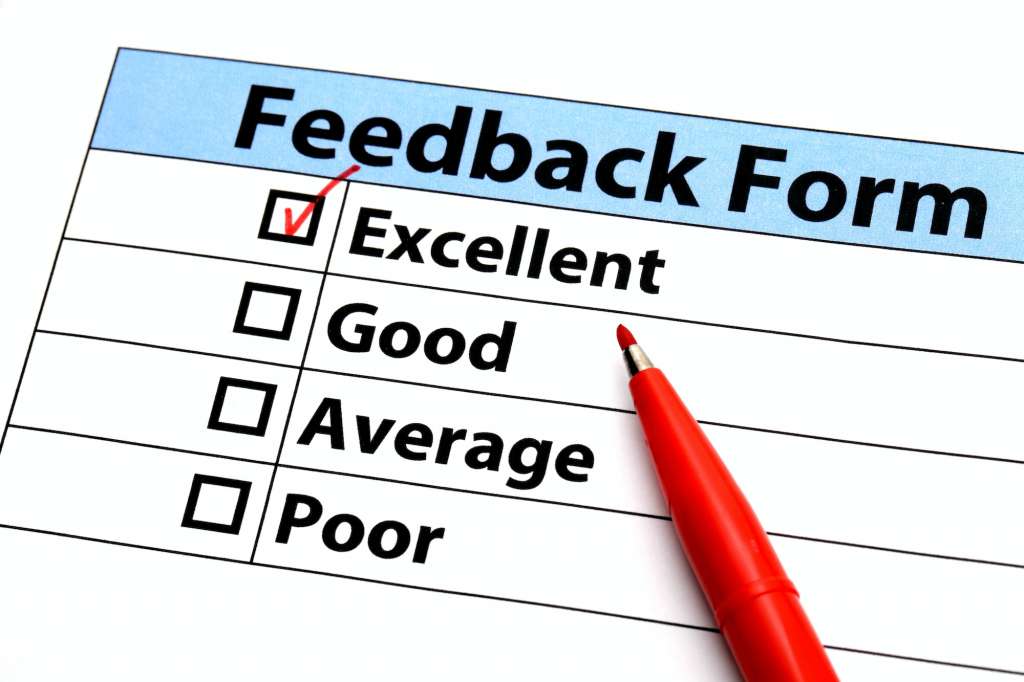Giving feedback is integral to maintaining a productive and harmonious workplace. Effective feedback not only serves to rectify problems but also to motivate and empower employees. Managers need to make time to give thoughtful, constructive feedback and receive input from employees. This continuous feedback loop allows both parties to give and receive suggestions for improvement in a collaborative spirit. Ultimately, this open flow of communication empowers employees and aligns the team.
Here’s a comprehensive guide on providing feedback to employees to foster growth and positive change.

How SwagMagic can help your brand?
- Bulk Buy & Save on your gifts!
- Curate Customized Swag Boxes!
- Launch Your Store for your employees!
- Secure Swag Storage with us!

Key Strategies for Giving Effective Employee Feedback
Understand the Purpose
Before delivering feedback, knowing why you’re doing it is crucial. Feedback should be about helping employees grow and improve, not just pointing out their faults.
Choose the Right Time
Feedback should be timely. Don’t wait for weeks to discuss an issue. However, ensure the setting is appropriate – a private space free from distractions works best.
Be Specific
Avoid vague statements like “You need to do better.” Instead, pinpoint the exact behavior or outcome you’re addressing. “Your report lacked specific data on sales numbers” is more effective.
Focus on Behavior, Not Personality
Feedback should be about what an employee does, not who they are. For instance, saying “You didn’t communicate effectively in the meeting,” is better than saying “You’re not a good communicator.”
Use the ‘Sandwich’ Method
Start with a positive comment, follow with constructive feedback, and then end on another positive note. This structure helps soften the blow and highlights the employee’s strengths.
Offer Solutions
It’s not enough to point out problems. Provide actionable suggestions that can help them improve.
Encourage a Two-Way Conversation
The approach to feedback should be a dialogue, not a monologue. Allow employees to share their perspectives, ask questions, and offer solutions.
Curate the perfect box of handpicked gift they’ll love and send joy their way
Curate the perfect box of handpicked gift they’ll love and send joy their way
Follow Up
Feedback doesn’t end after the conversation. Schedule a follow-up to review progress and ensure the feedback is understood and acted upon.
Stay Neutral
Feedback should be devoid of emotions. Steer clear of any negative emotions like anger or frustration. Approach the conversation with a calm and neutral tone.
Reiterate Your Support
Let your employees know you believe in their capabilities and potential. Assure them that feedback is a tool for growth and you’re there to support them on their journey.
Incorporating these strategies will enhance your employees’ performance and bolster your organization’s overall health. Remember, feedback is a gift that, when delivered thoughtfully, can lead to tremendous growth and success.

Benefits of Providing Constructive Feedback to Employees
Meaningful, regular, and constructive feedback is a critical component of effective management and can significantly impact an employee’s growth and an organization’s success.
Promotes Professional Growth
Meaningful feedback helps employees identify areas for professional development, contributing to their career progression.
Boosts Employee Engagement
Regular feedback makes employees feel valued and engaged, as they understand that their work is being noticed and appreciated.
Enhances Focus on Performance
Constructive feedback provides clear guidance on what is expected, leading to improved employee performance.
Encourages Open Communication
A regular feedback culture fosters open communication between employees and management, leading to a more transparent and honest workplace.
Builds Confidence
When employees receive positive recognition, it boosts their confidence and morale, encouraging them to take on new challenges.
Fosters a Positive Work Environment
Constructive feedback contributes to a positive and supportive work environment, where employees feel comfortable and motivated.
Improves Problem-Solving Skills
Regular, constructive feedback helps employees to better understand and solve work-related challenges effectively.
Aligns Employee and Organizational Goals
Meaningful feedback helps align individual goals with the organization’s overall objectives, ensuring everyone works towards the same targets.
Reduces Employee Turnover
Employees who feel their contributions are recognized and their development is supported are more likely to stay with the organization.
Facilitates Continuous Learning
Feedback encourages a culture of continuous learning and improvement, benefiting both the individual and the organization.
Increases Job Satisfaction
Regular and meaningful feedback can significantly increase job satisfaction, as employees feel their work has purpose and value.
Strengthens Team Dynamics
Constructive feedback helps in resolving conflicts and building stronger team relationships.
Helps in Time Management
Feedback can guide employees on prioritizing tasks, leading to better time management.
Enhances Customer Satisfaction
When employees improve their skills and performance, it positively impacts customer service and satisfaction.
Supports Personal Development
Beyond professional growth, regular feedback can play a role in personal development, helping employees become more self-aware and adaptive.

Employee Feedback Examples: Tips for Giving Positive Feedback
Giving positive feedback is an essential skill for effective management and employee development.
Scenario 1: Completion of a Challenging Project
- Feedback: “I was impressed with how you handled the recent project. Your ability to overcome challenges and your dedication to meeting the deadline did not go unnoticed. Your hard work and determination were key to the project’s success.”
- Tip: Acknowledge specific challenges the employee overcame and the impact of their efforts on the project’s success.
Scenario 2: Improvement in Performance
- Feedback: “I’ve noticed a significant improvement in your performance, especially in [specific area]. It’s clear that you’ve put in a lot of effort to enhance your skills, and it’s paying off in your work.”
- Tip: Be specific about the areas of improvement and how it has positively affected their work.
Scenario 3: Exceptional Teamwork
- Feedback: “Your ability to work collaboratively with your team has been outstanding. You’ve shown great communication skills and a willingness to support your colleagues, which has really boosted team morale and productivity.”
- Tip: Highlight their interpersonal skills and the positive impact on the team dynamics.
Scenario 4: Exceeding Sales or Performance Targets
- Feedback: “Congratulations on exceeding your performance targets this quarter! Your hard work and dedication to achieving these goals are commendable and contribute greatly to our team’s overall success.”
- Tip: Recognize their achievement in measurable terms and its contribution to the larger team or company goals.
Scenario 5: Innovative Problem-Solving
- Feedback: “Your innovative approach to [specific problem] was impressive. Your creativity not only solved the issue but also inspired the team to think outside the box.”
- Tip: Appreciate their creative thinking and how it led to effective problem-solving.
Scenario 6: Leadership Qualities
- Feedback: “You’ve shown remarkable leadership qualities, particularly in [specific situation]. Your ability to guide and motivate your team members has had a positive impact on the team’s performance.”
- Tip: Focus on specific leadership behaviors they exhibited and their positive outcomes.
Scenario 7: Consistently High Performance
- Feedback: “Your consistent high performance is truly appreciated. You set a great example with your work ethic and reliability, contributing significantly to our team’s success.”
- Tip: Acknowledge their sustained efforts and reliability as valuable to the team.
Scenario 8: Effective Customer Service
- Feedback: “Your handling of customer interactions, especially in [specific situation], has been exceptional. Your professionalism and dedication to customer satisfaction are evident and valued.”
- Tip: Point out how their customer service skills have positively represented the company.
Scenario 9: Adaptability to Change
- Feedback: “Your adaptability during the recent [change in process/structure] was admirable. You embraced the changes positively and helped others in the transition.”
- Tip: Recognize their flexibility and positive attitude during times of change.
Scenario 10: Mentoring New Employees
- Feedback: “Your role in mentoring new team members has been invaluable. You’ve shown great patience and expertise, which has helped them settle in quickly and effectively.”
- Tip: Appreciate their contribution to onboarding and supporting new team members.

General Tips for Giving Meaningful Feedback
Be Specific
Vague compliments can feel insincere. Provide specific examples.
Be Timely
Offer feedback soon after the achievement or behavior.
Be Sincere
Ensure your feedback is genuine and heartfelt.
Encourage Continued Growth
Along with praise, encourage continued development and growth.
Public Recognition
Sometimes, acknowledging achievements in front of peers can be highly motivating.
Types of Employee Feedback
Employee feedback is a crucial component of workplace communication and can take various forms, each serving different purposes.
Constructive Feedback
This is aimed at helping employees improve their performance or behavior. It is typically specific, actionable, and focused on areas that need improvement, while also being delivered in a supportive manner.
Positive Feedback
This involves praising employees for their excellent work. It’s essential for boosting morale and motivation and reinforcing positive behaviors and outcomes.
Negative Feedback
This type of feedback addresses poor performance or negative behaviors. It should be handled carefully, focusing on the behavior rather than the person, and should be constructive.
360-Degree Feedback
This comprehensive feedback comes from all directions – supervisors, peers, subordinates, and sometimes clients. It provides a well-rounded view of an employee’s performance and behavior in the workplace.
Formal Feedback
Typically given during performance reviews, this feedback is planned and documented. It often involves evaluating an employee’s performance against their job responsibilities and goals.
Informal Feedback
This is more casual and given on the spot. It can be positive or constructive and is part of day-to-day communication. It helps in making immediate adjustments and reaffirming good practices.
Developmental Feedback
Focused on employee growth and future performance, this type of feedback provides insights and suggestions for professional development and career progression.
Peer Feedback
Feedback that comes from an employee’s colleagues or team members. It can be invaluable in promoting a team-oriented workplace and offer different perspectives on individual performance.
Managerial Feedback
Provided by a manager or supervisor, this feedback is crucial as it can directly influence an employee’s career trajectory within the organization.
Self-Feedback
Encouraging employees to self-reflect and assess their performance can be a powerful personal and professional growth tool.
Real-Time Feedback
Immediate feedback is given right after a particular action or event. It’s helpful in making quick adjustments and addressing issues promptly.
Sandwich Feedback
A method where constructive criticism is ‘sandwiched’ between positive comments. The goal is to soften the impact of the critique, although its effectiveness can vary depending on how it’s delivered.

SwagMagic: Revolutionizing Employee Feedback with Unique Swag Gifting
In Silicon Valley, where innovation is the norm, SwagMagic is currently making waves by transforming how feedback is given to employees.
Sophie, a manager at a tech startup, finds traditional feedback methods a tad impersonal. She desires a more tangible approach to complement her words of appreciation or critique. This is where SwagMagic shines.
With SwagMagic, managers don’t just provide textual feedback; they pair it with curated swag, personalized gifts and snacks. For instance, when Mark, a dedicated developer, solves a complex bug, Sophie sends him a custom coffee mug labeled “Bug Hunter Extraordinaire!” through the platform. Similarly, a limited-edition notebook set gets dispatched for Mia’s work anniversary with a note highlighting her contributions.
Employees eagerly anticipate feedback, not just for the insights but also for the delightful swags accompanying it. SwagMagic is not just revolutionizing feedback with merchandise; it’s strengthening bonds, elevating engagement, and reinforcing the value of every team member’s contribution. In the digital realm, SwagMagic reminds everyone that appreciation can have a magical touch.
Providing effective feedback is a cornerstone of good management. By taking the time to make thoughtful, regular feedback focused on behaviors rather than personalities, managers can motivate and empower their teams. Employees also need opportunities to receive feedback openly without fear of retaliation. An environment where feedback freely flows both ways makes for more collaborative, aligned, and productive workplaces. With some concerted effort towards constructive communication, managers can dramatically improve team morale, performance, and outcomes through the simple yet powerful act of quality feedback.

Leave a Comment